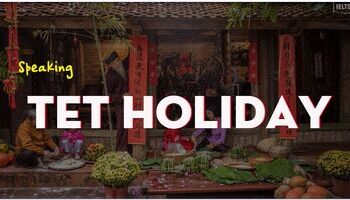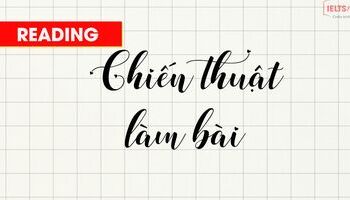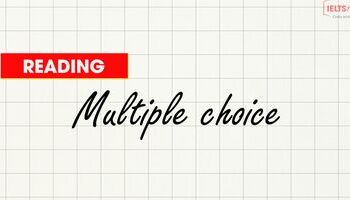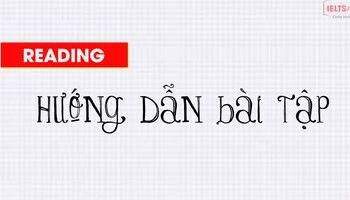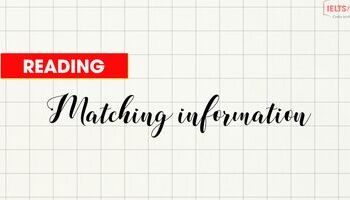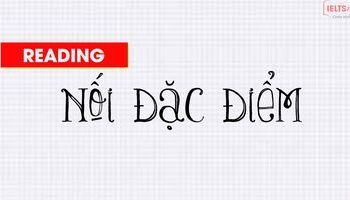Đề bài Speaking Part 2 - An important holiday that is celebrated in your country là một trong những đề thường gặp mà các bạn nên học để ứng phó dễ hơn với bài thi của mình.
Với phần thi Part 2, các bạn có thể thực hiện bài nói theo phương pháp A.R.E.A hoặc lựa chọn theo những cách nói khác nhau nhưng đủ logic và ý tưởng. Hãy cùng tham khảo cách nói theo phương pháp và bài mẫu dưới đây nhé.
| Đề bài: An important holiday that is celebrated in your country
and explain why it is important. |
Bài mẫu số 1
Mời các bạn cùng xem video:
1. Phân tích câu hỏi
Câu hỏi của chúng ta là
Describe an important holiday that is celebrated in your country (Miêu tả một ngày lễ quan trọng tại nước bạn).
Gồm 4 câu hỏi gợi ý
- When – Ngày lễ được diễn ra vào thời điểm nào?
- What – Những hoạt động trong dịp lễ và những điều bạn thích/không thích
- Và cuối cùng là câu hỏi Why – Lý do ngày lễ này quan trọng.
Ở Speaking Part 2, các bạn sẽ có một phút để chuẩn bị cho phần nói của mình.
Các bạn hãy cùng tìm hiểu một số cách take note trong phần chuẩn bị nhé.
Với câu hỏi đầu tiên. When?
Ta có những gạch đầu dòng như sau:
- Tet – Lunar New Year
- 1st day in Lunar calendar
Late Jan to early Feb (3-4 days)
Tết sẽ thường được diễn ra vào ngày đầu tiên của năm theo lịch âm, rơi vào khoảng cuối tháng 1 đến đầu tháng 2 theo lịch dương và thường kéo dài 3 đến 4 ngày.
Tiếp theo là What activities – Những hoạt động tiêu biểu
- Decorations – ornaments and flowers – apricot and cherry blossoms
Customs – Prepare food, lucky money; family union; Visit pagoda
Ở phần này Trang sẽ nói đến việc trang trí nhà ngày Tết và những hoạt động khác như nhận tiền lì xì hoặc đi chùa.
Câu tiếp là Like and Dislike – Những điều thích và không thích
- Time to blow some steam– LIKE
Tết là khoảng thời gian để mình có thể dành thời gian cho bản thân và được nghỉ ngơi sau một năm làm việc và học tập.
- Traffic – DISLIKE
Traffic conjestion, tắc đường/kẹt xe chính là điểm mà Trang cảm thấy không được tối ưu lắm trong dịp lễ Tết này.
Câu cuối cùng là Why – Lý do ngày lễ này quan trọng.
- Reflect on past year and prepare for the new year
Dịp Tết sẽ là cơ hội để mọi người mọi nhà được kết nối lại với nhau, nhìn lại một năm vừa qua để chào đón năm mới với một tinh thần tốt nhất.
2. Bài mẫu thực hiện
When it comes to holidays, we could not not mention our Lunar New Year, also known as Tet in Vietnam.
Tet is one of the most anticipated holidays in Vietnam. It lasts 3 to 4 days from the first day of the Lunar calendar and usually falls between late January and early February.
Tet brings an abundance of celebratory activities. Prior to Tet, families would prepare traditional food such as chung cake (square cake) or sugar-preserved fruit. Tet is also an occasion for pilgrims and family reunions. People from across the country would return to their hometowns to be with their families during this time of the year. For adults, this is time to worship their long-gone ancestors and visit pagodas to pray for the new year. Children would look forward to Tet because they can receive lucky money. Another common practice during Tet is to decorate the house with ornaments such as couplets or flowers. Cherry blossoms in the North and apricot blossoms in the South.
When I was little, receiving lucky money was my favourite part as well. Growing up, Tet has become a chance for me to blow off some steam and have a little escape from the hustle and bustle of life. However, prior to Tet, it would be very difficult to commute since people are all on the street.
So Tet is definitely the most crucial holiday for me and Vietnamese people in general. It is one of the most well-known traditions that has been celebrated for thousands of years. This is a time to slow down, reflect on our past year and refresh ourselves for the new year.
Bài mẫu số 2
Các bạn cùng xem video:
1. Bài mẫu
Tet is usually celebrated around the end of January and marks the beginning of a new year in the lunar calendar. The whole holiday spans about 2 weeks or so, and it’s very important in Vietnamese culture. I’d say its significance is pretty much equivalent to that of Christmas or Thanksgiving in a lot of Western countries.
(Tết thường diễn ra vào khoảng cuối tháng 1 và đánh dấu sự khởi đầu của một năm mới trong lịch âm. Toàn bộ kỳ nghỉ kéo dài khoảng 2 tuần, và nó rất quan trọng trong văn hóa Việt Nam. Có thể nói rằng tầm quan trọng của Tết tương đương với tầm quan trọng của Giáng sinh hoặc Lễ Tạ ơn ở nhiều nước phương Tây.)
Tet is an occasion for families to reunite and do a lot of activities together such as cleaning and decorating the house, exchanging gifts, preparing and having traditional meals, etc.
(Tết là dịp để gia đình đoàn tụ và cùng nhau làm nhiều hoạt động như dọn dẹp và trang trí nhà cửa, tặng và nhận quà, chuẩn bị và ăn các bữa ăn truyền thống, v.v.)
What I love most about Tet is that during the year, my family and I are so occupied with our work that we don’t have time to properly connect with each other, so Tet holiday is the perfect occasion for us to bond.
(Điều mình yêu thích nhất vào dịp Tết đó là cả năm, mình và gia đình thường bận rộn với công việc nên không có thời gian để thực sự kết nối với nhau, vì vậy Tết là dịp hoàn hảo để mình và gia đình gắn kết.)
I’d also like to talk about how Tet holiday celebration has changed over the years. Before the pandemic, there were a lot more social gatherings, but ever since last year, outdoor events and festivals have been reduced to smaller scales, and even prohibited altogether in a lot of areas.
(Mình cũng muốn nói về việc cách đón Tết đã thay đổi như thế nào trong những năm qua. Trước đại dịch, có rất nhiều dịp tụ họp đông người, nhưng kể từ năm ngoái, các sự kiện và lễ hội ngoài trời đã giảm xuống quy mô nhỏ hơn, và thậm chí bị cấm hoàn toàn ở nhiều khu vực.)
People now focus more on indoor activities such as Facetiming their relatives or loved ones to wish them a happy new year instead of visiting each other in person, or watching fireworks online or on TV, and just spending more time with their families at home.
(Mọi người bây giờ tập trung nhiều hơn vào các hoạt động trong nhà như gọi Facetime với họ hàng và người thân để chúc mừng năm mới thay vì đến thăm trực tiếp, xem pháo hoa trực tuyến hoặc trên TV, và đơn giản là dành nhiều thời gian hơn cho gia đình ở nhà.)
I’m actually quite fond of this change because I’m a huge introvert and I don’t like attending big events where there are too many people. I’m just not a fan of crowded places in general. I just want to spend private time with my loved ones at home.
(Mình khá thích sự thay đổi này vì mình là một người hướng nội và mình không thích tham dự các sự kiện lớn nơi có quá nhiều người. Nhìn chung, mình không thích những nơi đông người. Mình chỉ muốn dành thời gian riêng tư với người thân ở nhà.)
2. Từ vựng
- To mark the beginning of sth = Đánh dấu sự khởi đầu của điều gì
- Span (v) + Period of time: kéo dài trong 1 khoảng thời gian nào đó
- Significance (n): Tầm quan trọng
- To be equivalent to = Tương đương với
- Reunite (v): Đoàn tụ
- Exchange gifts (v): trao tặng và nhận quà
- To be occupied with sth = Bận rộn với thứ gì
- Properly (adv): Tử tế, đúng cách
- Bond (v, n): Gắn kết
- Pandemic (n): Đại dịch
- Social gathering (n): Dịp tụ họp đông người
- To be reduced to… = Bị/được giảm xuống còn…
- Small scale (n): quy mô nhỏ
- Prohibit (v): Cấm
- To attend an event = Tham dự một sự kiện
Bài mẫu số 3
1. Lập dàn ý theo A.R.E.A
Answer: Giới thiệu sơ lược về ngày Tết cổ truyền
Reason: Giải thích vì sao ngày Tết quan trọng
- Mark the arrival of spring: Đánh dấu mùa xuân đến
Example: Các hoạt động hay diễn ra trong ngày Tết
- Family reunion
- Tet traditional food
- Decoration
- Customs around Tet: giving red envelope, visiting friends and families & going to pagodas
2. Bài mẫu
Today I’m going to tell you about one of the biggest, oldest traditional festival and has the widest popular range in Vietnam, which is Tet Holiday.
Tet marks (=celebrates) the arrival of spring and is the most important celebration in Vietnamese culture and it has the date falling in (which falls in) = takes place around late January or early February according to the Lunar Calendar.
Tết is also an occasion for family reunions. When Tet comes around the corner, most Vietnamese people return to their families to visit their family members, to worship at the family altar or visit the graves of their ancestors in their homeland as a sign of respect.
Many Vietnamese people prepare for Tet by cooking special holiday food which includes giò, xôi, canh măng anh banh chung - an indispensable (= absolutely necessary) dish that is tightly packed sticky with meat and mung beans filling, wrapped in banana leaves
Traditionally, every household is decorated by yellow apricot blossoms (hoa mai) in the central and the southern parts of Vietnam; or peach blossoms (hoa đào) in the northern part.
Many customs are practiced around Tet. Children often receive a red envelope containing money from their elders after giving them traditional Tet greetings. During Tet days people also visit relatives and friends to wish them all a happy new year. Local pagodas are popular spots as well, as people go there to wish for a better year to come for their families.
Tet holiday is the only occasion that people that people start forgetting about the troubles of the past year and hope for a better upcoming year.
3. Highlight vocabulary
- mark the arrival of spring /mɑːk/: đánh dấu mùa xuân về
- take place /teɪk pleɪs/: diễn ra
- come around the corner: sắp đến
- ancestor (n)/ˈænsestə(r)/: tổ tiên
- indispensable (adj)/ɪndɪˈspensəbl/: không thể thiếu
- yellow apricot blossoms: hoa mai
- peach blossoms: hoa đào
- custom /ˈkʌstəm/(n): phong tục
Các bạn cùng tham khảo thêm tài liệu hay khác:
- Tổng hợp bài mẫu IELTS Speaking Part 2 có video
- Tổng hợp bài mẫu IELTS Speaking Part 1 new
- Tổng hợp bài mẫu IELTS Speaking Part 3 từ Simon
